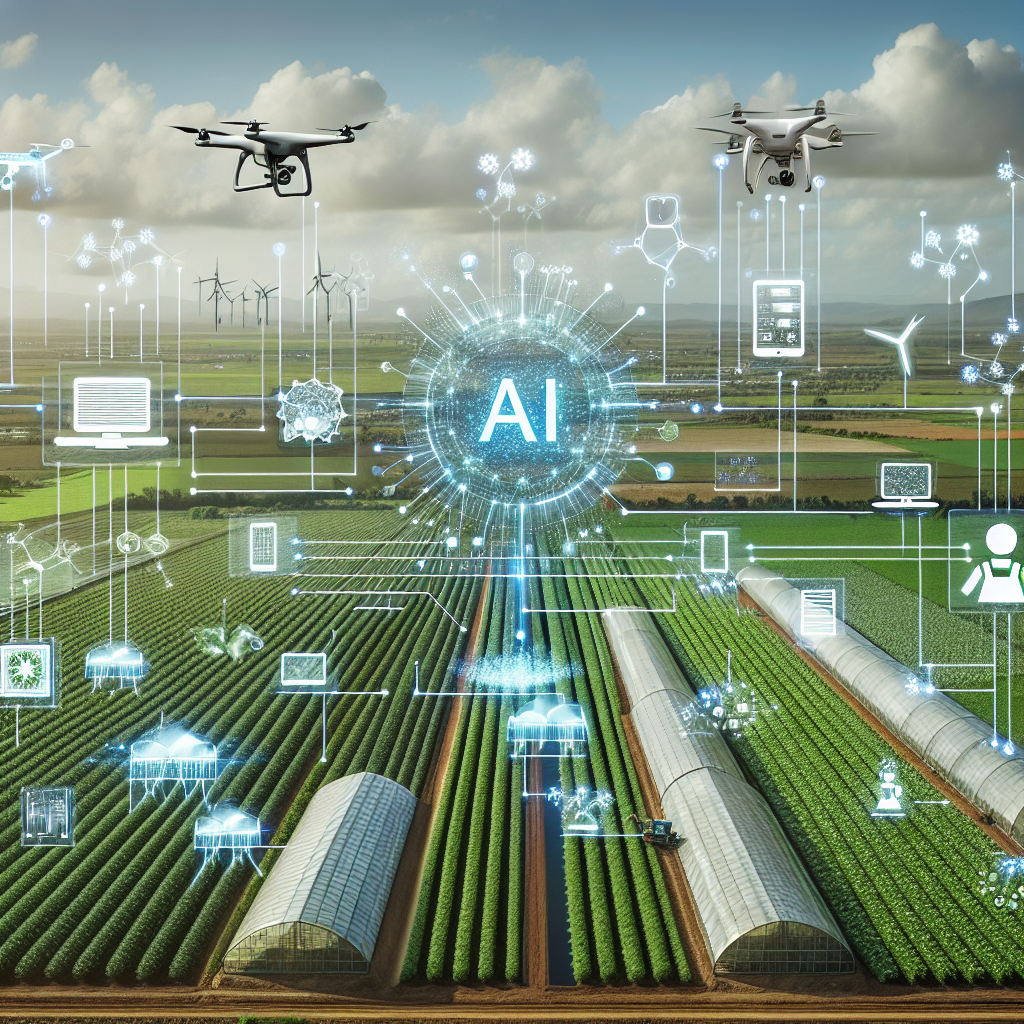The agriculture industry is constantly evolving and adopting new technologies to improve efficiency, sustainability, and productivity. One of the most promising technologies that is revolutionizing the agriculture sector is artificial intelligence (AI). AI tools have the potential to transform the way farmers manage their crops, livestock, and resources, leading to increased yields, reduced costs, and improved decision-making.
AI tools in agriculture encompass a wide range of applications, including precision farming, crop monitoring, predictive analytics, and autonomous farming equipment. These tools leverage data from sensors, satellites, drones, and other sources to provide farmers with valuable insights and recommendations. By analyzing large amounts of data, AI algorithms can help farmers optimize resource allocation, detect early signs of disease or pest infestations, and make informed decisions about planting, harvesting, and irrigation.
One of the key advantages of AI tools in agriculture is their ability to automate and streamline complex tasks that would be time-consuming or impossible for humans to perform. For example, AI-powered drones can fly over fields and collect data on crop health, soil moisture levels, and other factors, allowing farmers to identify problem areas and take corrective action quickly. Similarly, AI algorithms can analyze satellite imagery to monitor crop growth, detect anomalies, and predict yields with a high degree of accuracy.
Another important application of AI in agriculture is predictive analytics, which uses historical data and machine learning algorithms to forecast future trends and outcomes. By analyzing weather patterns, market prices, and other variables, AI tools can help farmers make better decisions about when to plant, fertilize, and harvest their crops. This can lead to higher yields, lower costs, and increased profitability for farmers.
In addition to precision farming and predictive analytics, AI tools can also be used to improve livestock management, food safety, and supply chain logistics in the agriculture industry. For example, AI-powered sensors can monitor the health and behavior of animals, detect signs of disease or distress, and alert farmers to take action. AI algorithms can also be used to track food products from farm to table, ensuring that they meet quality and safety standards throughout the supply chain.
Overall, the potential of AI tools in agriculture is vast and continues to grow as new technologies and innovations are developed. By harnessing the power of AI, farmers can optimize their operations, increase productivity, and sustainably manage their resources for future generations.
FAQs:
1. What are some examples of AI tools in agriculture?
– Some examples of AI tools in agriculture include precision farming systems, crop monitoring drones, predictive analytics software, and autonomous farming equipment.
2. How can AI tools help farmers improve crop yields?
– AI tools can help farmers improve crop yields by providing real-time insights and recommendations on planting, fertilizing, irrigation, and pest control. By analyzing data from sensors, satellites, and other sources, AI algorithms can help farmers optimize resource allocation and make informed decisions about their crops.
3. Are AI tools expensive to implement in agriculture?
– While the initial cost of implementing AI tools in agriculture can be significant, the long-term benefits in terms of increased productivity, reduced costs, and improved decision-making can outweigh the expenses. Additionally, as AI technologies become more advanced and widely adopted, the costs are expected to decrease over time.
4. How can farmers benefit from using AI tools in livestock management?
– Farmers can benefit from using AI tools in livestock management by monitoring the health and behavior of animals, detecting signs of disease or distress, and optimizing feeding and breeding practices. By leveraging AI-powered sensors and algorithms, farmers can improve the welfare of their livestock and increase their overall productivity.
5. What are some challenges associated with implementing AI tools in agriculture?
– Some of the challenges associated with implementing AI tools in agriculture include data privacy concerns, regulatory issues, and the need for specialized skills and training. Additionally, there may be resistance to adopting new technologies and changing traditional farming practices. However, with the right support and guidance, farmers can overcome these challenges and reap the benefits of AI in agriculture.

